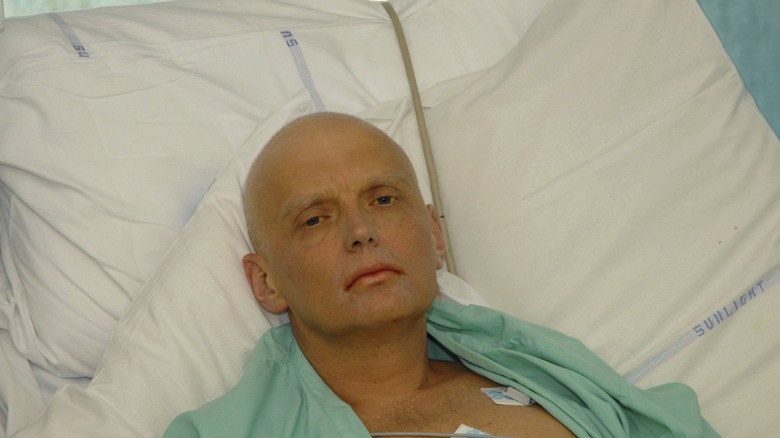The Tragic Death Of Alexander Litvinenko Explained
Many in the west initially believed that the fall of the Soviet Union in 1991 would present a brighter future for the new independent countries subsequently formed (via National Interest). However, while the new Russian Federation gradually shifted away from communism like the rest of the USSR's constituent republics, the use of force to secure its political interests was not something it was willing to abandon. Political assassination in particular has reportedly been a tactic that Russian agents under Vladimir Putin have made great use of.
In contrast to how assassinations in media and real-life are often quick affairs, such was not the case for Alexander Litvinenko, a Russian security officer who in 2000 defected to Britain and began working with MI6 (via NPR). The successful effort to kill him resulted not in a quick and ambiguous death, but instead in a very painful and public trauma that informed the world of how potentially vindictive Putin — himself a former agent of the defunct KGB — could be.
Alexander Litvinenko helped investigate his assassination
In 2006, Alexander Litvinenko was looking into a number of crimes potentially committed by the Russian government, including the alleged assassination of journalist Anna Politkovskaya. It was seemingly a separate investigation into the Russian mafia and their presence in Spain that allegedly provoked an exceptionally harsh retaliation against Litvinenko (via BBC). On November 1, shortly before he was set to testify on this, he fell gravely ill and required immediate hospitalization. His condition only worsened in the following days as his hair fell out, and his body wasted away, while proving to be a radiation hazard to medical staff (via The New York Post).
While death appeared to be, and on November 23 ultimately was, imminent for him, Litvinenko and Scotland Yard were able to build a case that he had been poisoned with a radioactive substance known as polonium-210. According to the CDC, this material can be fatally toxic but usually only when consumed, inhaled, or if it enters through an open wound. During a meeting at a hotel caught on CCTV, either two Russian agents or a third potentially Russian-tied party such as the waiter are believed to have slipped the poison into his tea (via The Guardian).

